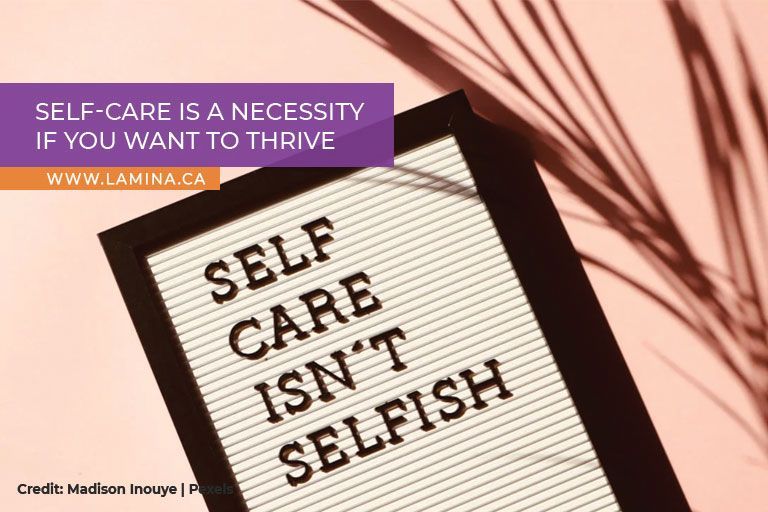Here’s what you can do to give yourself the love you deserve:
- Take Advantage of the Power of Nature
Nature has a profound calming effect on the mind and body. Immersing yourself in the beauty of the outdoors is a free and readily available way to de-stress. Here are some ideas:
- Taking a walk in the park
Find a local park with greenery and fresh air. Simply walking amidst nature can significantly reduce stress hormones and improve your mood.
If you're feeling adventurous, explore hiking or biking trails. Exercise combined with nature's calming effect creates a powerful self-care experience.
Planting and nurturing a garden at home is a therapeutic activity that connects you with nature, provides a sense of accomplishment, and offers beautiful scenery to enjoy.
- Relax and Practice Mindfulness
There are many free activities you can do at home to promote relaxation and mindfulness:
Meditation practices like mindfulness meditation help you focus on the present moment, reducing anxiety and promoting inner peace. Numerous online resources offer guided meditations for beginners.
Simple deep breathing techniques, like box breathing, can significantly reduce stress and anxiety within minutes. They are a great go-to tool for on-the-spot stress management.
Yoga combines physical postures, breathing exercises, and meditation to promote overall well-being. You can find free yoga routines online or consider attending a community yoga class in a park.
Treat yourself with kindness and understanding, just as you would a friend. Practice self-compassion by acknowledging your feelings and accepting yourself for who you are.
Constant digital stimulation can be mentally draining. Regularly disconnecting from technology can significantly reduce stress and improve your mood.
Dedicate a weekend to disconnecting from your phone and computer. Enjoy hobbies, spend time with loved ones, or simply relax without the constant ping of notifications.
- Schedule screen-free time
Set specific times throughout the day to switch off your devices. This could be during meals, before bed, or even for dedicated "unplugged" hours in the evening.
Engaging in creative activities is a fantastic way to express yourself and reduce stress. Here are some budget-friendly options:
Writing down your thoughts and feelings can be a powerful tool for processing emotions and reducing stress.
Adult colouring books offer a relaxing and creative way to de-stress. They are readily available at affordable prices.
If you're artistically inclined, pick up some drawing materials or paints and unleash your creativity. Even if you don't consider yourself an artist, the process itself is therapeutic and promotes mindfulness.
Dust off an old instrument or learn a new one. Playing music can be a fun and expressive way to de-stress.
Social connection is a crucial aspect of mental health. Spending quality time with loved ones can significantly reduce stress and improve overall well-being. Here are some budget-friendly ways to connect:
Organize game nights with friends or family at home. Board games, card games, or even video games can be a fun and affordable way to connect and have a laugh.
Have a potluck dinner with friends or family. Everyone contributes a dish, keeping the costs low, while still enjoying a delicious meal and good company.
Volunteering is a great way to give back to the community and connect with others on a deeper level. Look for volunteer opportunities in your area that align with your interests.
Some activities require minimal investment but deliver a significant impact on your mental well-being:
- Visiting a museum or art gallery
Many museums offer free admission days or discounted tickets for students and seniors. Immersing yourself in art can be a stimulating and mood-boosting experience.
Learn a new dance style! There are often affordable community centers or online platforms offering introductory dance classes.
Getting lost in a good book can be a great way to escape daily pressures and unwind. Borrow books
- Prioritize Physical Health
Taking care of your physical health significantly impacts your mental well-being. Here are some affordable ways to boost your physical health:
Numerous free workout videos are available online, catering to different fitness levels and preferences. You can create your own home gym with minimal equipment or use your body weight for resistance training.
Combine fun with fitness by following dance workout videos. They're a great way to burn calories and improve your mood.
Focus on incorporating nutrient-rich foods into your diet. Eating balanced meals can provide the energy and nourishment your body needs to function optimally.
Prioritize getting enough sleep each night. Aim for 7-9 hours of uninterrupted sleep to recharge your body and mind.
Don't hesitate to seek support when needed. Talking to a friend, family member, or mental health professional can provide valuable guidance and support.
Joining a support group can connect you with others facing similar challenges, offering a sense of community and understanding.
Many online platforms offer mental health resources and support communities.
- Financial Well-Being and Mental Health
Financial stress can significantly impact mental health. A study has found that “financial worries were significantly associated with higher psychological distress” Taking steps to manage your finances can improve your overall well-being. Here are some tips:
Create a budget to track your income and expenses. This helps you identify areas where you can save money and reduce financial stress.
If you're struggling with debt or financial planning, consider seeking advice from a financial advisor or credit counsellor.
- Financial assistance options
If you're struggling with debt, exploring options like
online installment loans or
loans with instant approval online can provide temporary relief. However, you need to use these options responsibly and understand the terms and conditions before borrowing.
Here are some situations where a loan might be considered:
Unexpected health issues can deplete savings. A loan could cover necessary treatments or procedures not fully covered by insurance.
Therapy, medication, or specialized programs can be expensive. A loan might provide temporary financial relief to prioritize mental well-being.
Divorce, job loss, or relocation can strain finances. A loan could bridge the gap during a difficult transition period.






